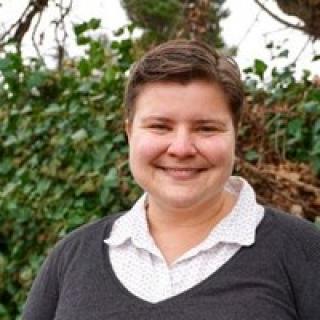
As the chief clinical officer at Amara, a proud member of the LGBTQ+ community, a foster parent and a former child protective services social worker, I am deeply concerned about the federal funding bill amendment advanced by the House Appropriations Committee last week.
This is simply another way to legalize discrimination against LGBTQ+ people and prevent them from being the loving parents they wish to be.
Here are the facts
There are roughly 9,000 children in foster care in Washington state but only 6,000 foster homes. This anti-LGBTQ+ bill allows agencies that receive federal funding to restrict the pool of potential families even further at a time when we desperately need more — not fewer — foster families.
Thousands of children in our community need a safe and stable home; this bill makes their wait longer, denying homes to children who need them.
The types of measures like the recent bill amendment have one goal: Protect child welfare agencies that wish to discriminate.
This includes single and divorced people, the LGBTQ+ community or those of another faith. That’s why, as the Human Rights Campaign found, these bills are not supported by mental health professionals or the broader foster and adoption community. They hurt people.
What this means for my family
I am proud to work at Amara. We were one of the first agencies in the country to work with LGBTQ+ couples and individuals seeking to become foster and adoptive parents.
Over the years, we’ve worked closely with hundreds of same-sex couples and LGBTQ+ individuals as they opened their hearts and homes to children and youth in foster care. The families we’ve seen created are safe, secure and nurturing. They bring stability and love to children experiencing crisis.
LGBTQ+ couples and individuals — all 10 million of them in the U.S. — are also a much-needed resource in the mission to help kids in foster care. Members of the LGBTQ+ community are more likely than the general population to consider foster care and adoption.
They're also more likely to take in older children and youth, who are historically “harder to place.” When you consider the number of kids who need a home, it’s backward to make it harder for LGBTQ+ individuals to become foster and adoptive parents.
I know this firsthand. My wife and I recently became foster parents for two young siblings. The oldest is sweet and passionate. He throws all his energy into everything he does: riding his new balance bike, running through the sprinkler, playing with friends at school and letting you know his opinion. He loves music, being outside, rocks, fish, playing with kids and adults, his sister and anything active.
The youngest is a sparkly little toddler who loves to buckle buckles, play with puzzles, follow her brother around, be held by us and sing “Twinkle, Twinkle” at the top of her lungs in the back of the car. It breaks my heart to think anyone would believe these two children would be better off without the safety and stability we provide for them in our home.
And if you’re thinking that LGBTQ+ individuals can just go to another foster agency if this or that one discriminates against them, think again. Some states do not have any open and affirming agencies available and don’t provide any options for foster parents to be licensed directly.
The bottom line
We cannot afford to open the door for anyone to capriciously apply their personal religious principles to discriminate against qualified, vetted people who are willing and capable of sharing their homes with children who need them.
This bill is dangerous. It limits the number of foster homes at a time when we desperately need to expand those numbers. It further marginalizes LGBTQ+ parents and families. It allows agencies and organizations to discriminate against whomever they choose with no accountability.
In moments like this one, we must remember the children in foster care like the two sweet kiddos for whom my wife and I care. Their need for a nurturing, stable home should be prioritized over politics. Please put children first. Reject this bill. Don't hurt kids.
To take action or for more information, please visit the Family Equality Council.











